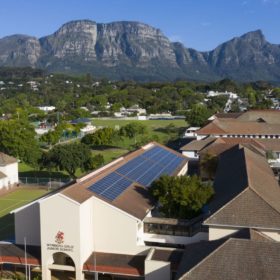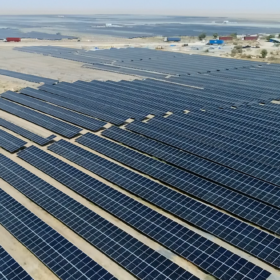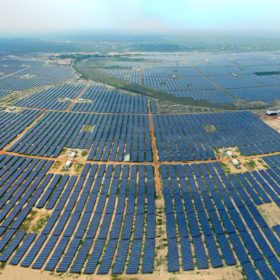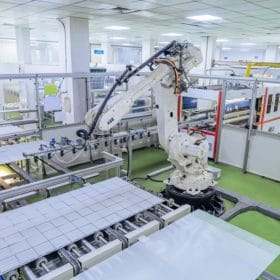REI Expo 2021 opened today, at India Expo Center
The three-day renewable energy event, organized from September 15-17, kickstarted today at India Expo Center, Greater Noida, with Covid-19 protocols. To avoid rush and maintain social distancing at the event, attendees have been asked to select from morning and afternoon time slots.
International group offers $68m loans for struggling off-grid clean energy distributors
‘More than 90’ suppliers of appliances such as solar lanterns and home solar panels, as well as mini-grid installers, will be offered low-interest credit by an assortment of government-backed and privately-financed entities.
Engie commissions 200 MW solar plant in Gujarat
The solar plant, spread across 380 hectares in the Raghanesda Solar Park, is Engie’s second-largest PV project in India. It was completed within the schedule, despite the multiple challenges during the Covid pandemic.
‘Polysilicon shortage will continue through 2021’
The latest global PV industry outlook published by trade group SolarPower Europe, has indicated tight supply of the solar panel raw material is expected to persist this year but the trade body said it would be unlikely to drive further price rises.
Electricity demand in India to grow at 6% in FY2022
Ratings agency ICRA maintains a negative outlook for thermal power generation despite a rise in electricity demand. The thermal plant load factor will remain subdued at 57%. The gap between the average cost of supply and the average tariff for discoms is estimated at 70-75 paise per unit for FY2022.
India could add 8.5 GW of solar in FY2022
Solar capacity addition in the fiscal year 2021-22 will surge, led by a strong project pipeline. Tariffs will go up amid rising module prices but will remain competitive at below INR 3/kWh (US$ 0.040/kWh).
Module price increases to moderate solar project returns
Solar module prices have increased by about 15-20% over the last 4-5 months to around 22-23 cents/watt as of date. As PV modules comprise about 50-55% of the overall project cost, such an increase in the module price level, if sustained, may moderate the debt service coverage metrics for developers by about 12-14 basis points.
Surge in solar panel and polysilicon prices may impact projects in India
Modules represent 45 to 55% of the project capex. In a very competitive market like India, independent power producers have lower margins, and even a modest increase in module prices will put more pressure on them.
Bridge To India lowers Q2 solar outlook by 43% due to Covid
The analysts have revised their estimate for utility-scale solar addition in the April-May-June period to 1,350 MW, as against 2,350 MW expected earlier.
Covid adds to solar manufacturer woes
A pandemic-related sales slump has dealt another blow to domestic panel makers already faced with rising input costs and an expected surge in imports due to the scheduled wind down of safeguarding duties on foreign products from late July.















